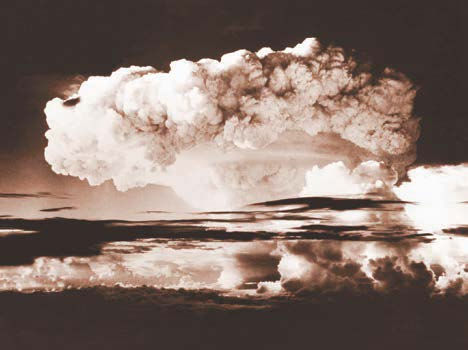Massacre at Peterloo: August 16, 1819
- Catholic Textbook Project
- Aug 14, 2020
- 2 min read
This text comes from our book, Light to the Nations II: The Making of the Modern World.
On a summer’s day in August 1819, tens of thousands of people gathered in St. Peter’s Fields, near Manchester, in Lancashire County, England. They had come, summoned by radical leaders, to hear the reformer Henry Hunt give a speech on the causes he stood for — yearly elections for members of Parliament, universal manhood suffrage, and voting by secret ballot. Great throngs of people had begun to arrive a little before noon on that day, August 16, 1819. Many carried flags, some marched in formation, others — men, women, and even children — were there any which way. In the end, 60,000 to 80,000 people surrounded the cart from which Hunt was to give his address.

Hunt had not been speaking long when he espied a body of cavalry, its members brandishing their swords and advancing at a brisk trot toward the crowd. Hunt paused in his speech but then resumed it, assuring his listeners that the intruders had come only to disturb the meeting. But then he saw the multitude before him make way; the cavalry had pushed its way into the crowd and was coming toward him. When the soldiers reached the cart, the commanding officer, with drawn sword, told Hunt that he was a prisoner. Another radical leader, named Johnson, was also arrested; others for whom warrants had been issued escaped into the crowd.
“Have at their flags!” The cry came from the cavalrymen, some of whom now began using their swords to cut down the flags on the speakers’ cart while others went after the flags in the crowd. The charge of horsemen into the dense throng struck fear into the bystanders; they fled in all directions while the cavalry, losing all self-control, began trampling anyone they could — men, women, and children — and cutting down others with their sabers. In about 10 minutes, the entire field had been cleared, except for the hundreds of bodies, “some still groaning, others with staring eyes, gasping for breath,” according to an eyewitness account. It continued: “Others will never breathe more; all silent, save for those low sounds and the occasional snorting and panting of steeds.”

This Peterloo Massacre, as it came to be called, was not the end of government attempts to stamp out radicalism in England. In response to the massacre, the Tory-led Parliament passed laws that limited the people’s right to hold public meetings and distribute political literature. Calls for reform of Parliament were to be treated as sedition.
Conditions did not improve when George IV became king in 1820. As regent for his insane father, George III, since 1811, George IV had long supported the repression of radicals. Though a clever man (he was a student of the classics and fluent in French, Italian, and German), George IV was not a particularly good man. He was notoriously immoral and so did not mind the corruption that filled the British government. This made the new king very unpopular.
A Requiem from Faraway Portugal
In Portugual, in the year of the Peterloo Massacre, the composer, João Domingos Bomtempo premiered his Requiem in C-Minor. Here is a performance by the Berlin Radio Symphony Orchestra and Chorus.


